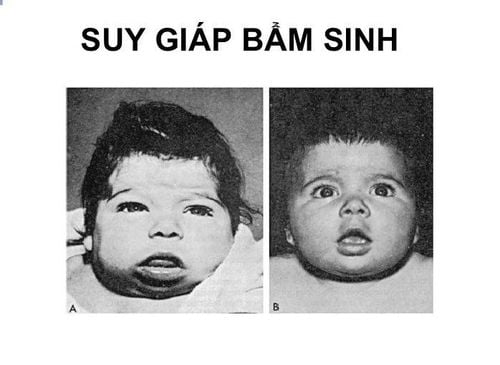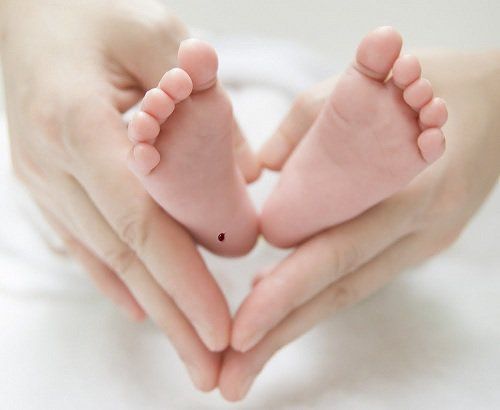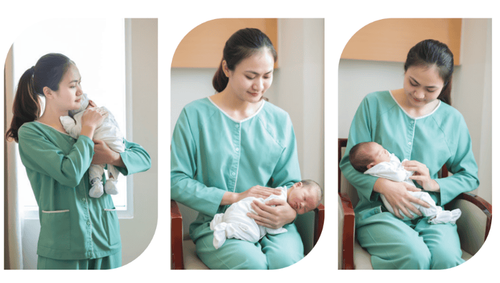This is an automatically translated article.
The article was professionally consulted by MSc Do Hoang Ha - Doctor of Biochemistry, Laboratory Department - Vinmec Hai Phong International General HospitalNewborn screening programs aim to detect metabolic disorders in babies early, help prevent dangerous complications, and give babies a normal, healthy life.
1. Why do babies need newborn screening?
All newborns should have newborn screening tests. Most babies are born healthy, but there is a chance that they will have health problems that are not easily detected early. Newborn screening tests can help doctors and parents detect these problems in babies soon after birth. If detected early, doctors can conduct treatment to prevent the baby's health conditions from progressing to serious, even death.2. What newborn screenings are in use today?
Thanks to advances in science and technology, newborn screening tests are now increasingly diverse. Some of the screening tests below are performed routinely for newborn babies to detect endocrine diseases and metabolic disorders that affect their health, physical and mental development.G6PD (Glucose-6-Phosphate Dehydrogenase) Deficiency Glucose-6-phosphate dehydrogenase (G6PD) deficiency is one of the most common enzyme deficiencies in humans. Deficiency of G6PD enzyme can present as increased free bilirubin in newborns leading to jaundice, yellow eyes. If the bilirubin is too much, it will seep into the brain, causing irreversible neurological complications, affecting brain development later on (keratosis). Additionally, people with this disorder may experience episodes of rapid hemolysis after ingesting fava beans or being exposed to certain infections or medications. Prolonged hemolysis will lead to anemia. Congenital hypothyroidism The thyroid gland, located just in front of the neck, works by releasing hormones that control metabolism and nutrition, especially Thyroxin (T4). These hormones control how quickly the body uses up energy, influence a child's growth, and are also key factors in helping children grow. Babies with congenital hypothyroidism do not have enough thyroid hormone, which slows brain growth and development. If detected early, the baby will be treated with oral hormone replacement pills.

Congenital adrenal hyperplasia (CAH) Congenital adrenal hyperplasia is a group of disorders involving the hormones secreted by the adrenal glands. Congenital adrenal hyperplasia, which affects both boys and girls, causes the adrenal glands to produce too much androgen (male steroid hormone) and in some cases, not enough hormones that regulate the salt balance of the body. body.
Congenital hearing loss Children develop important speech and language skills during the first few years of life. Hearing loss detected early can be treated to help prevent further problems.
3. Why do some babies need to be tested again?
In some cases as follows, the doctor will notify and order re-testing if:The mother is discharged from the hospital when the baby is less than 24 hours old. The first sampling is not enough or the sample is not satisfactory. The results of the first test were suspicious of an abnormal result. The repeat test does not mean that the baby has a health problem, but ensures careful screening to ensure the most accurate results for the baby.
Consult your doctor with any questions and concerns, as well as if you want to do some other tests.

Please dial HOTLINE for more information or register for an appointment HERE. Download MyVinmec app to make appointments faster and to manage your bookings easily.
Articles refer to sources: Kidshealth.org, Acog.org, Emedicine













